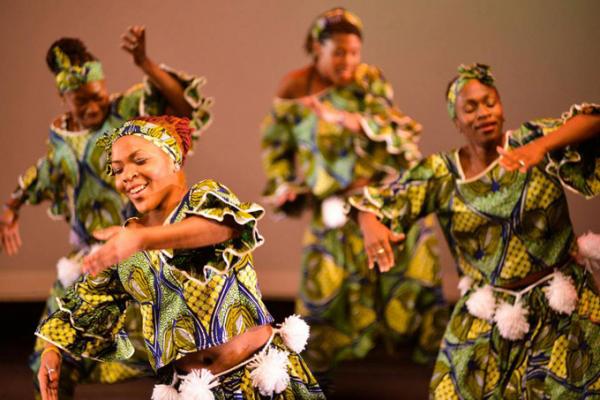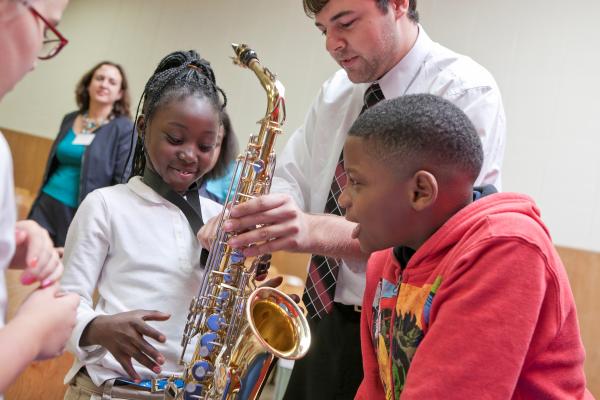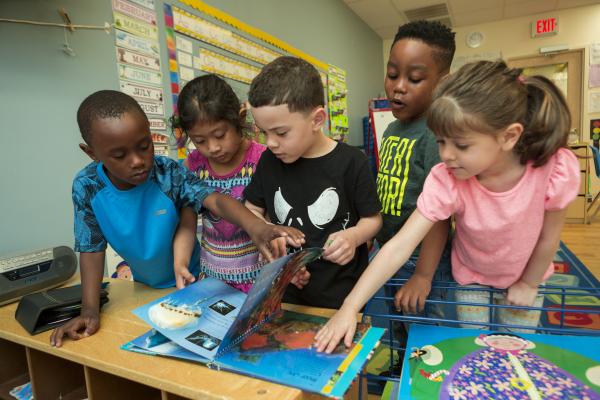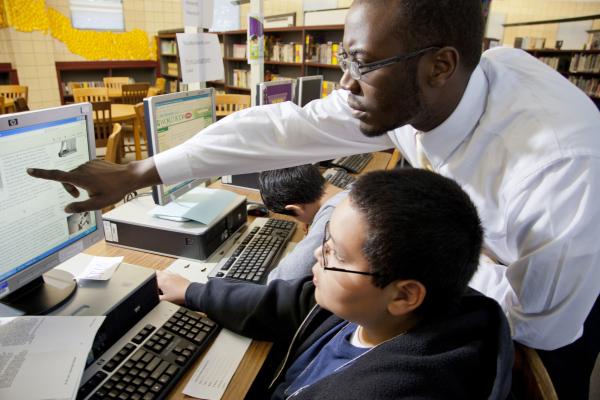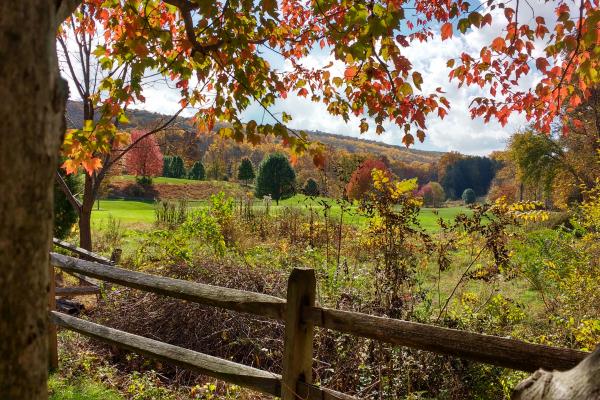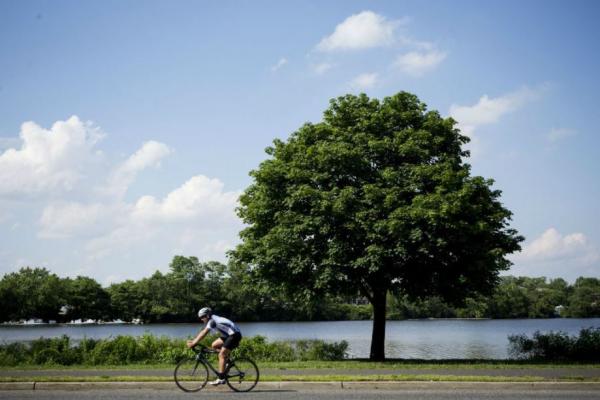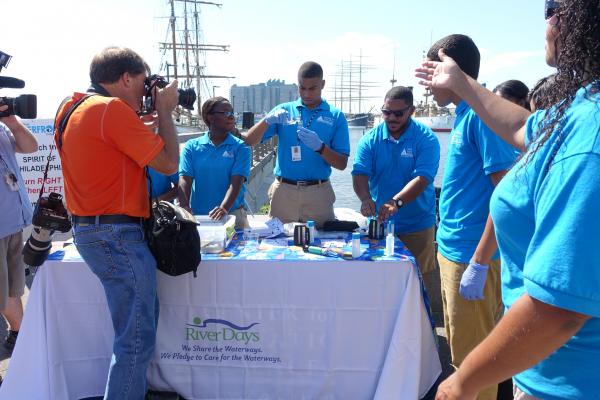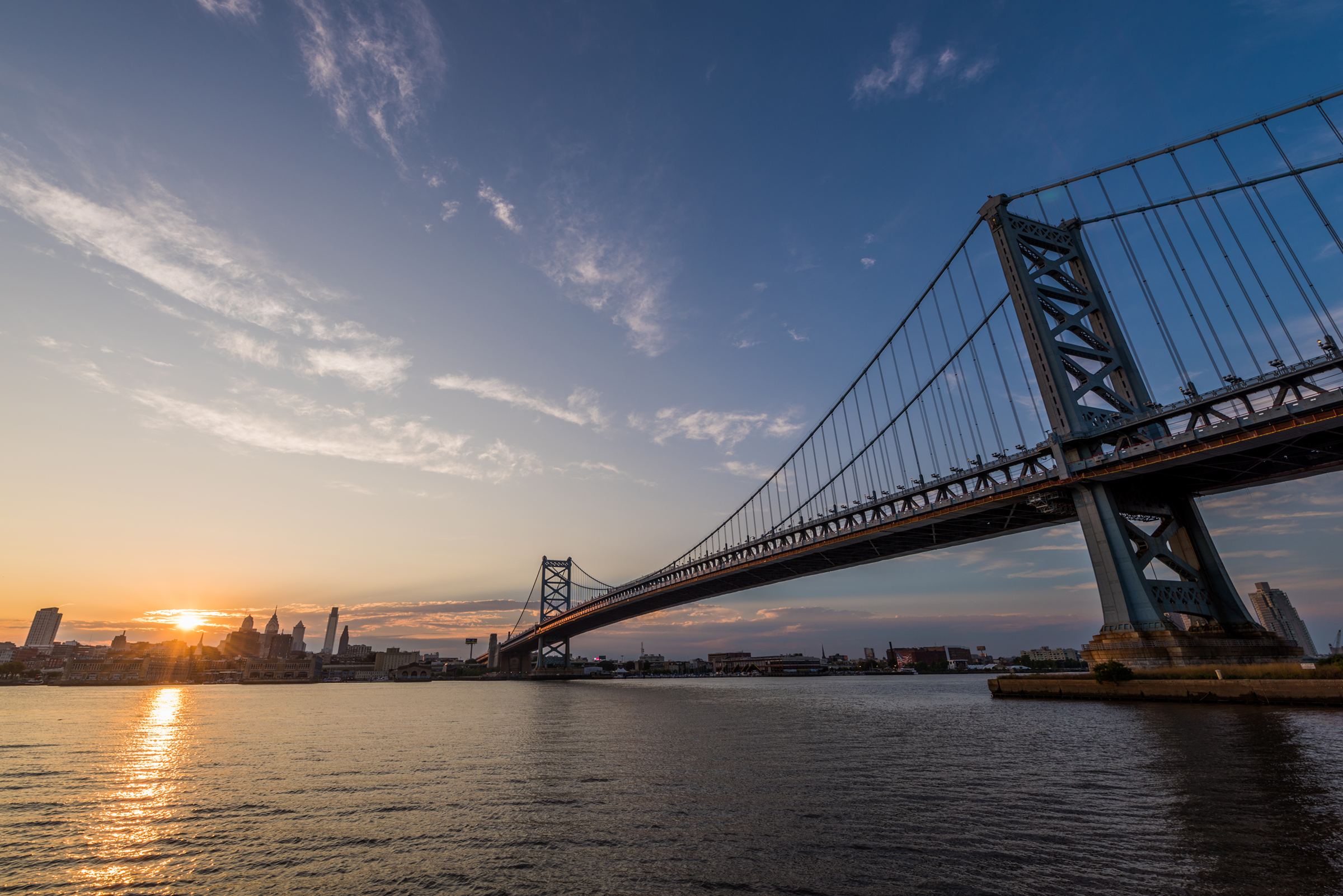
Photo by Mark Willard
2016 was marked by an unprecedented election season. Divisive rhetoric became the norm, while civil, productive, public discourse became a casualty. Many were left questioning the future of the nation. But what does it all mean for Philadelphia – a city that’s been reestablishing itself as a world-class destination for visitors, residents, commerce, and development?
We can begin by asking more questions about the kind of city we want for ourselves and for our children. How do we enhance local quality of life and expand economic opportunity for all Philadelphians? How do we give voice to our common interests and shared values to forge new paths forward to collectively shape a better future for the region?
At the William Penn Foundation, we have supported three grantmaking areas for many years that are key components for discussion about what will accelerate the recent successes here. By improving access to high-quality education, especially for Philadelphia’s youngest learners; protecting our environment and the watershed that provides drinking water for 15 million people; developing high-quality public spaces that bring together and engage people of diverse backgrounds across all neighborhoods; and supporting a vibrant cultural community that stretches us to think differently about how we view the world, we can contribute to common solutions.
We consider these areas of focus – education; watershed protection; and arts, culture and public spaces – to be essential ingredients for a successful and just city. By strengthening them, we continue the work started by Phoebe and Otto Haas when they created the William Penn Foundation in 1945. We support the city and its people, from children in early childcare centers and entering pre-K, to community members engaged in re-envisioning their parks and recreation centers, to the remarkable diversity of walkers, runners, and bikers from every age group, background, and neighborhood enjoying the Schuylkill River Trail along the waters of a clean river.
We at the William Penn Foundation hope that you will join us in the ongoing dialogue about what unites us as a city as we continue to build a strong foundation for a prosperous, vital, and equitable Philadelphia.
Sincerely,
THOMAS HAAS
Chair of the Corporation

JANET HAAS, M.D.
Chair of the Board
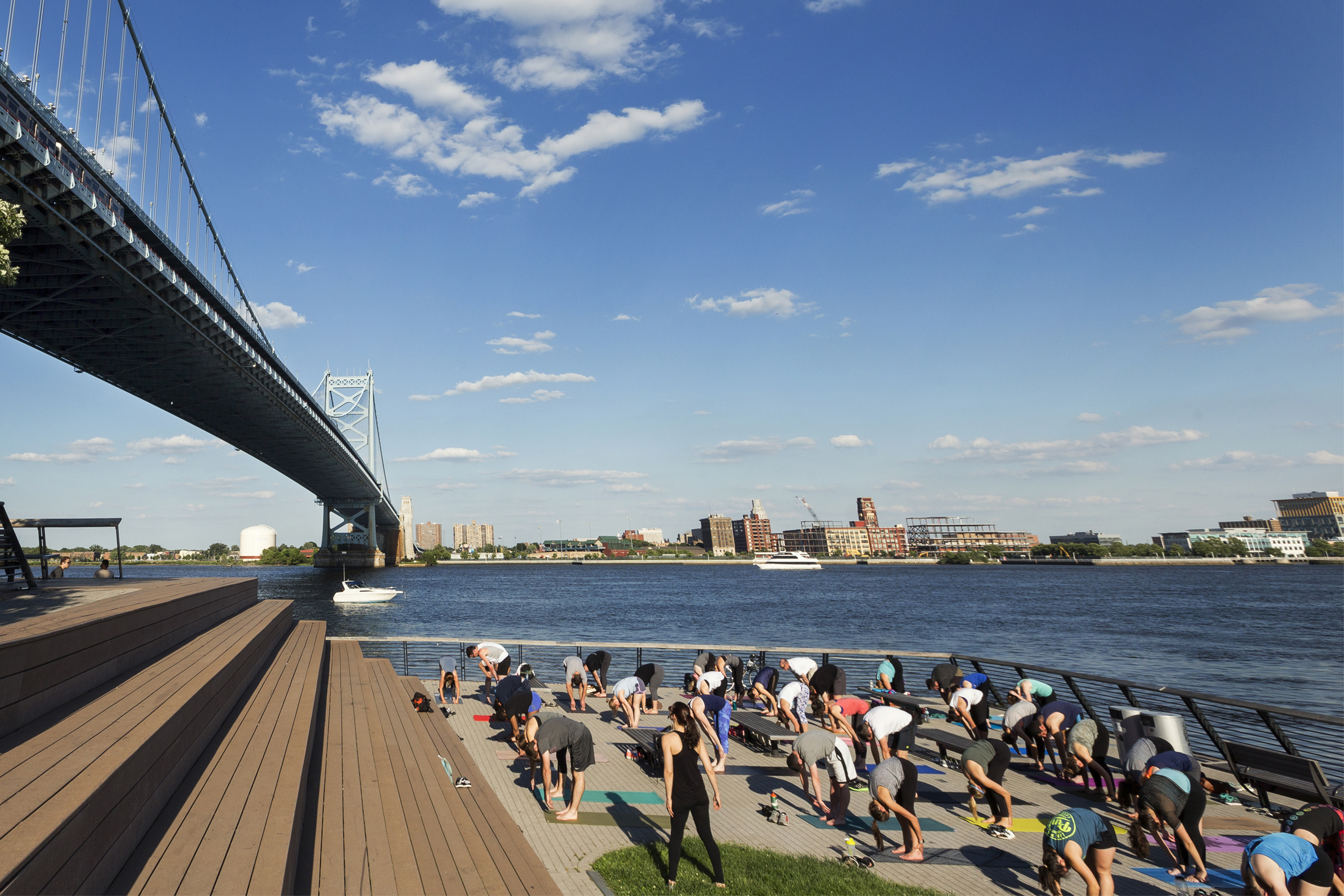
The intent of our Creative Communities work is that through equitable, accessible, dynamic public spaces and vibrant artistic and creative expression, people will come together, engage with each other, and build community, empathy, and shared understanding. At this time in our nation’s history, when so much of the conversation is divisive, these outcomes are especially relevant.
Informing Our View of the World and Ourselves through Arts & Culture
Through exposure to the arts, young people, especially, expand their view of the world they live in and their role in it. In 2016, we funded a formative evaluation of our arts education strategy, entitled The Socioemotional Benefits of the Arts: A New Mandate for Arts Education. This robust, two-year study examined how arts education impacts socioemotional outcomes for students, particularly in the context of a large, urban school district. Key findings suggested that even brief exposure to arts education programs can spark interest in the arts; can lead to attributes like increased tolerance, perseverance and motivation to achieve, particularly among younger students; and at all levels can disrupt academic disengagement.
Engaging the Entire City in Creating a Contemporary Monument to Philadelphia
Monument Lab is a nine-week public art and history project produced by Mural Arts Philadelphia. It is designed to engage a diverse public in the guiding question: "What is an appropriate monument for the current city of Philadelphia?" with a goal of developing an exhibition that presents a collaborative and more equitable portrait of an evolving city.
This question was posed to more than 20 contemporary artists working around the world, who are creating temporary monuments that will be displayed in ten public spaces across the city from September-November 2017. Each site will also include interactive pop-up “laboratories” for soliciting local knowledge and cultivating civic dialogue and engagement. The project will additionally include a central hub exhibition space at the Pennsylvania Academy of the Fine Arts where data collected from the public at pop-up “laboratories” is shared.
Monument Lab promotes the use of civic spaces across the city, both in Center City and the surrounding neighborhoods, as sites for the exhibition of thought-provoking art and audience engagement that enable public spaces to serve as platforms for community and cultural expression.
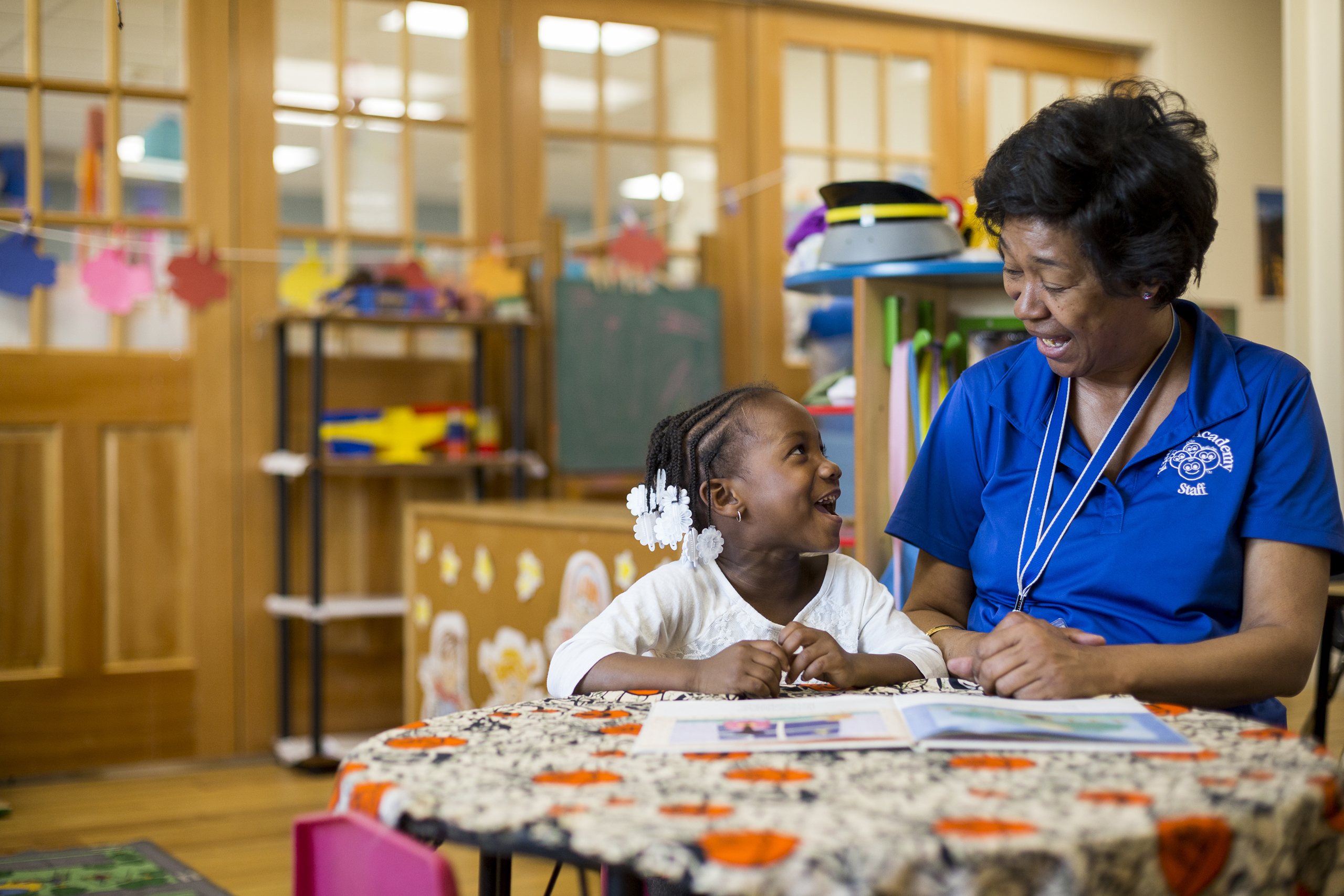
The William Penn Foundation is committed to the success of Philadelphia’s children. We support efforts to improve school readiness, help young children read on grade level by the end of third grade, and improve programs and pathways for high school completion. In partnership with many others, we are working toward the day when all children, regardless of family income, can experience educational success.
Strengthening our Workforce
Research has shown that well-trained, high-quality teachers are the most important school-based factor impacting student achievement. Yet professional learning opportunities for teachers, particularly ones that help them to meet the changing needs of their students, are often in short supply.
In 2016, we funded Temple University to work with the School District of Philadelphia, the Philadelphia Federation of Teachers, and the National Board for Professional Teaching Standards to establish a model program to help K-12 teachers hone their skills and improve their impact on student achievement through a nationally recognized advanced certification program.
Equally important is ensuring there is a strong base of teachers for our youngest learners. As more high-quality seats are created with Philadelphia’s goal of enrolling 6,500 more children in high-quality programs over the next five years, more high-quality teachers will be needed to serve those students.
To support the professional development of these teachers, we funded an effort by the Philadelphia Health and Hospital District 1199c to build a model program that includes college coursework, on-the-job training, mentoring, and financial supports. It will help current child care workers attain their Associate degree, the required certification to be a lead classroom teacher in highly rated programs, and help build a stronger workforce.
Catalyzing Policy Change
The Foundation has been a significant funder of the Pre-K for PA campaign, whose efforts helped secure an increase of $30 million for early childhood education in the 2016-2017 state budget. This increase will result in an additional 700-800 publicly funded high-quality pre-K seats for low-income children in Philadelphia. Another important education policy milestone was reached when the state adopted the funding formula recommended last year by Pennsylvania’s Basic Education Funding Commission and informed by advocacy, education, and research supported in part by the William Penn Foundation. In addition, more than $350 million has been committed to K-12 education funding over the past two years, representing historic increases. These advances help move us toward a more equitable and adequate system, but there is much more to do. The William Penn Foundation will continue to support advocates for children and invites others to join us in supporting those who push for the resources our children need and deserve.
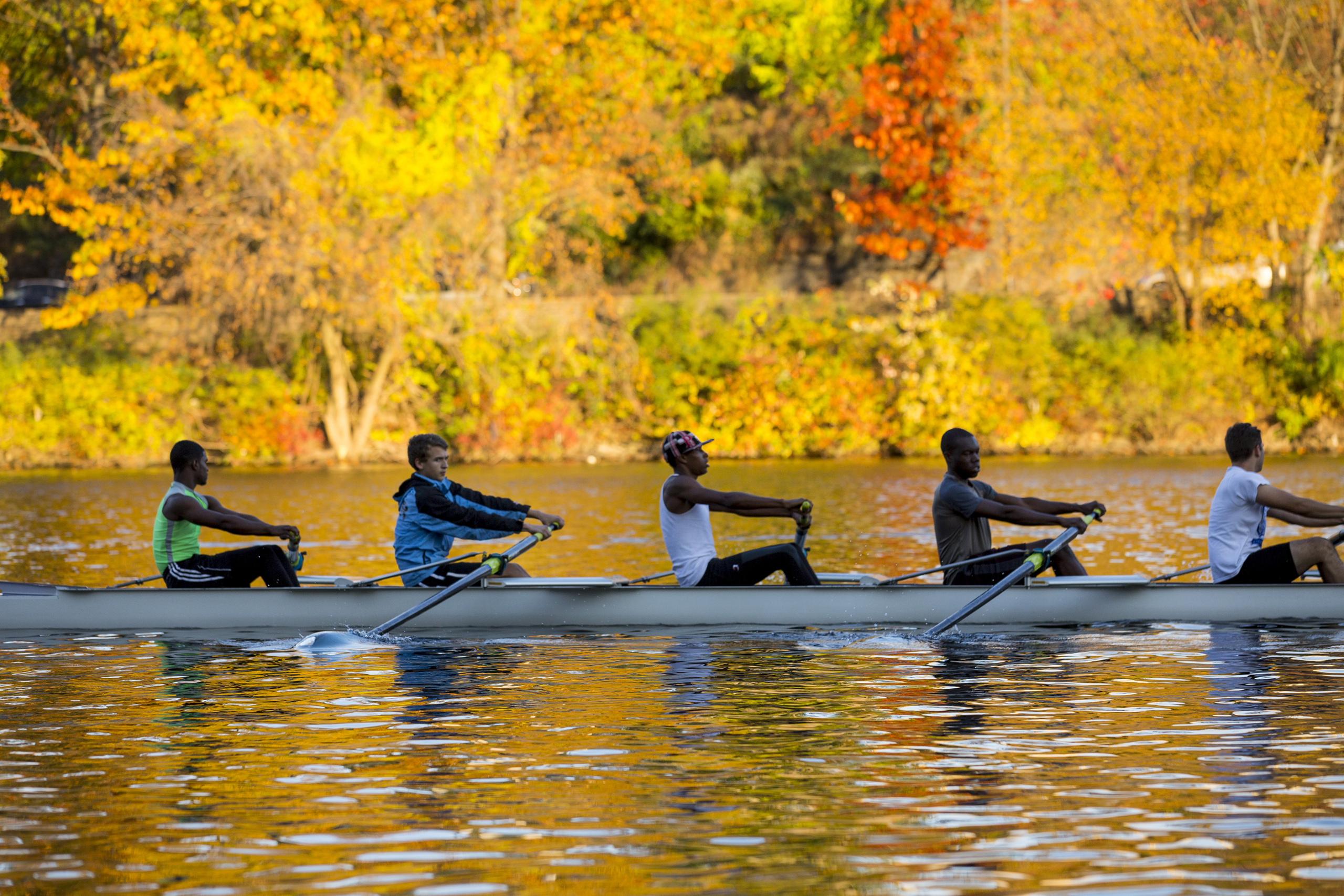
While many things changed in 2016, one thing did not: clean water in the Delaware River watershed continues to be essential for ecological and human health and water-dependent businesses in Pennsylvania, New Jersey, New York and Delaware. Dramatic evidence of this is the fact that the watershed provides drinking water for more than 15 million people in those states, including half of the residents of New York City and all of the residents of Philadelphia, Camden, and Wilmington. Despite past successes in reducing pollution, there are persistent and growing threats to water quality – including loss of forests in headwaters, runoff from agricultural fields, polluted stormwater, and continued development of natural land.
The Foundation’s Watershed Protection Program is designed to catalyze action to protect and restore clean water in the face of these threats.
Working on the ground to protect and restore
With Foundation support, more than 50 conservation organizations across the watershed are advancing one of the nation’s largest privately funded watershed protection efforts: the Delaware River Watershed Initiative. In 2016, our grantmaking continued this critical work to protect forests and restore streams in eight carefully selected, ecologically significant places. Through the Initiative, new tools were developed to measure progress and strategically map out future projects. A Foundation-funded evaluation of the Initiative was carried out in 2016 to improve practice, and we awarded more than $15 million in grants to continue this conservation and restoration work in 2017 while simultaneously engaging in a strategic planning process, using innovative tools developed in the early years of the Initiative to inform the next phase of the work.
Fostering deeper engagement
Millions of people recreate on the Delaware River and its tributaries each year, whether they’re fishing, paddling or enjoying a scenic view of the water from a nearby trail. These outdoor enthusiasts are a largely untapped source of watershed stewards and advocates, and many of our grantees are engaging these people in learning about and caring for the water, using trails as platforms to provide access to our region’s rivers and streams; environmental education centers as hubs to increase awareness and understanding of water issues; and experiential programs as a means to inspire stewardship of the watershed. In 2016, we increased access to waterways through seven grants totaling $2.6 million toward the continued planning, development, and use of the Circuit Trails, which will ultimately include a 750-mile trail network, with many miles running alongside the region’s waterways. We also supported the launch of River Days, a series of community events hosted at 23 environmental centers located on the Circuit Trails and major extension trails to draw attention to our unique yet connected waterways.
Looking at the watershed as a whole
To protect water quality within this 13,500-square-mile watershed, it’s imperative for public agencies, conservation organizations and other stakeholders to have a comprehensive understanding of system-wide threats to clean water. With this in mind, we supported research that will inform policy makers and advocates as they make decisions that will affect the watershed’s health. We also funded outreach and communications to build affinity for the watershed, as well as effective networks which mobilize people to advocate for better practices to protect our clean water. To do this, we awarded nearly $3.5 million in grants to address loss of forested headwaters, agricultural runoff and polluted stormwater, including grants to the Pennsylvania Growing Greener Coalition, New Jersey Keep it Green Coalition, and Delaware’s Clean Water Alliance for education campaigns on the importance of state funding for conservation and watershed protection.
March | Creative Communities
The Foundation partnered with the Knight Foundation to welcome more than 319 funders from across the country to Philadelphia for The Funders Network annual conference. Attendance was record-setting and showcased the important work happening around public space development and sustainability across the city.
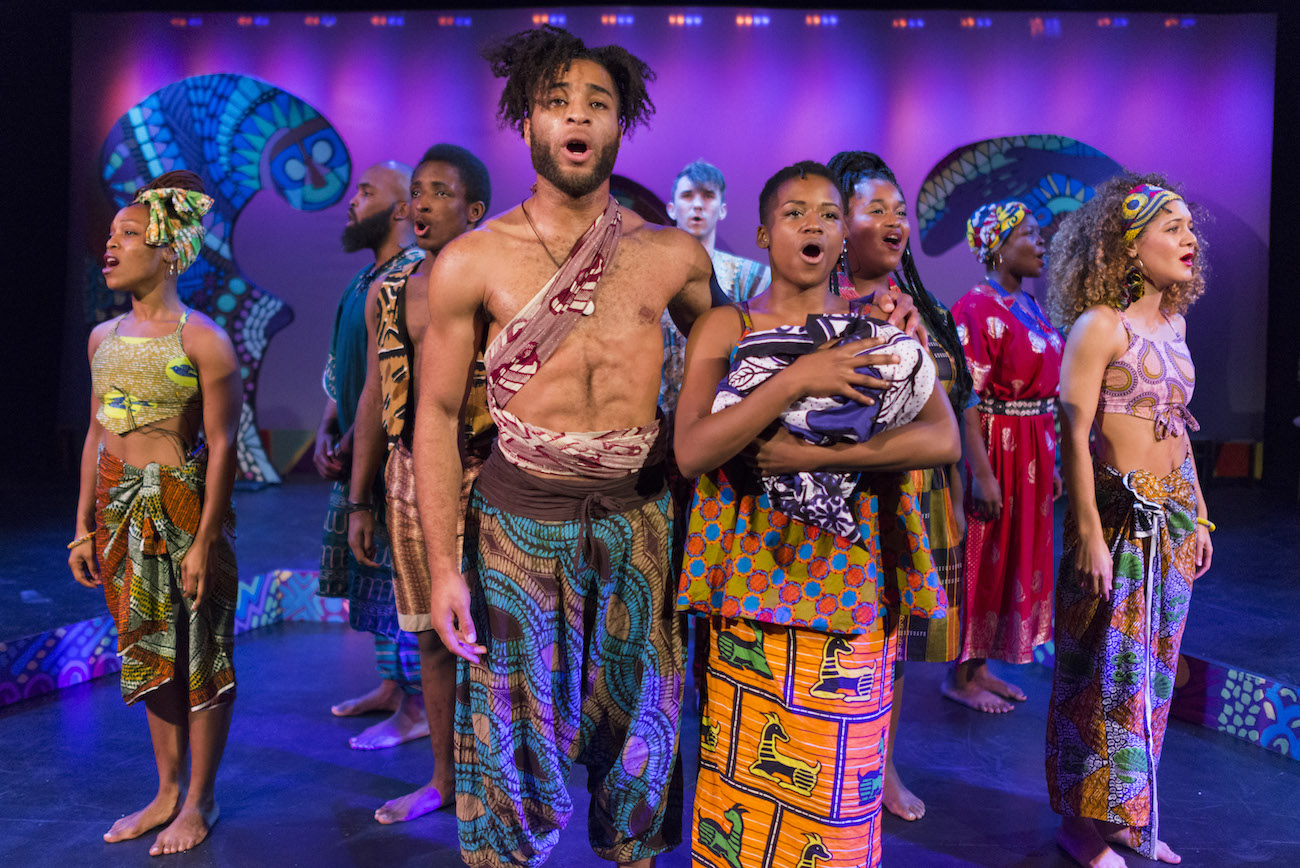
April | Creative Communities
The Foundation awarded its first round of multi-year, unrestricted, core support grants to arts and cultural organizations. This new approach to funding provides much-needed flexibility to the sector.
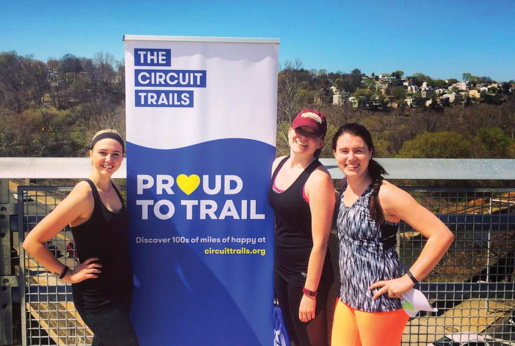
April | Watershed Protection
The Circuit Trails branding campaign was launched locally and nationally, with a new “Proud to Trail” tagline. The branding helped to solidify the Circuit’s identity as the trail network continued to grow and develop. The Circuit is actively used as a national model by Rails-to-Trails Conservancy, the largest and most influential trail advocacy organization in the country.
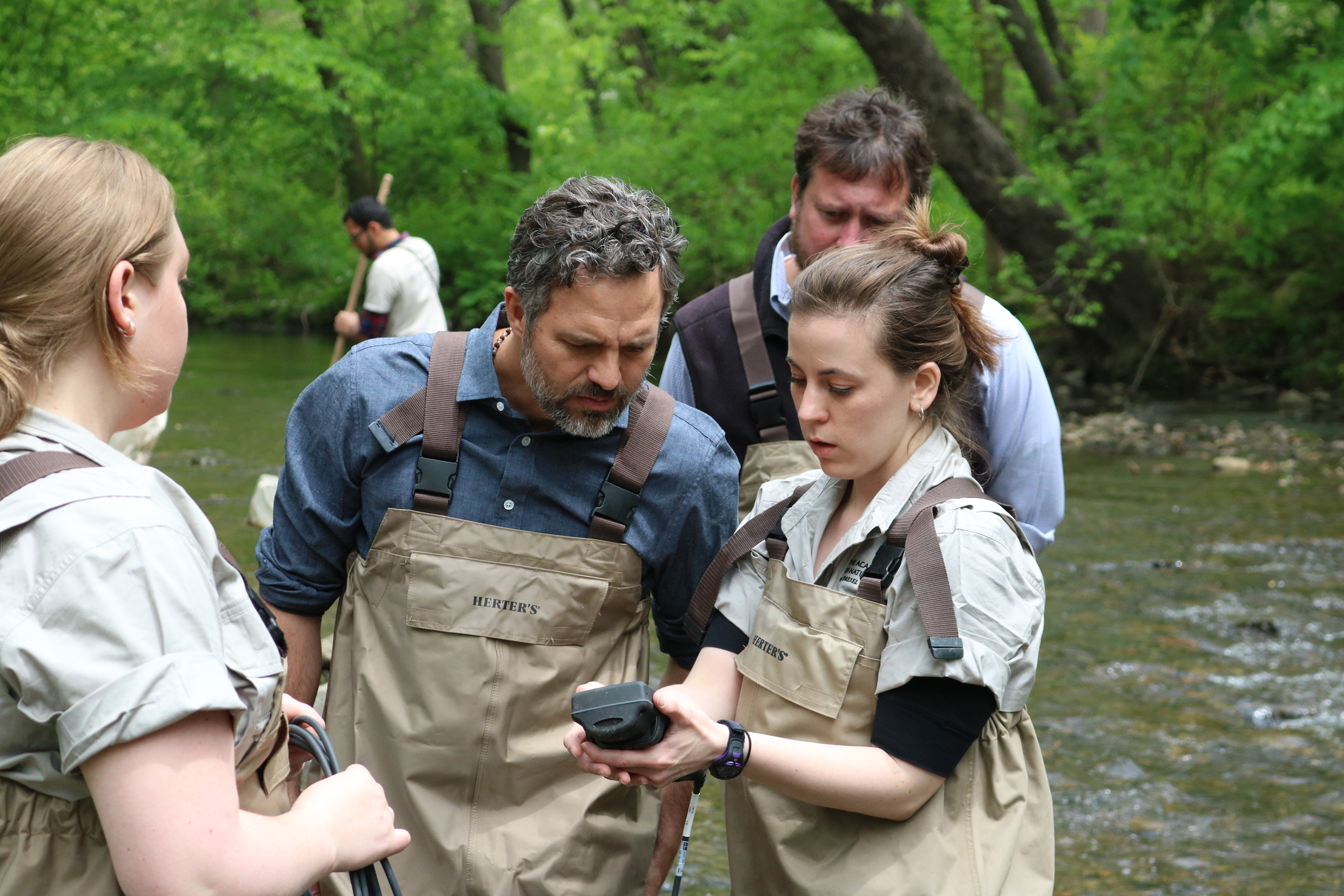
May | Watershed Protection
The Foundation joined the Academy of Natural Sciences and the Open Space Institute to welcome actor Mark Ruffalo to Philadelphia to learn about the Delaware River Watershed Initiative. Mark met with scientists from the Academy to learn more about the Initiative's robust water quality monitoring and focus on data, and also participated in a roundtable discussion with DRWI organizations to learn about their involvement in the effort to protect regional water resources.
June | Great Learning
An important milestone was reached when Pennsylvania codified the funding formula recommended by the legislature’s Basic Education Funding Commission. The new formula was informed, in part, based on data, research, and information compiled by groups that received funding from the William Penn Foundation. Though experts estimate that over $3 billion in additional funding is needed to have an adequate and equitable system of public schools, this milestone means that new funds for public schools will be distributed across the Commonwealth in a fair fashion that reflects student needs.
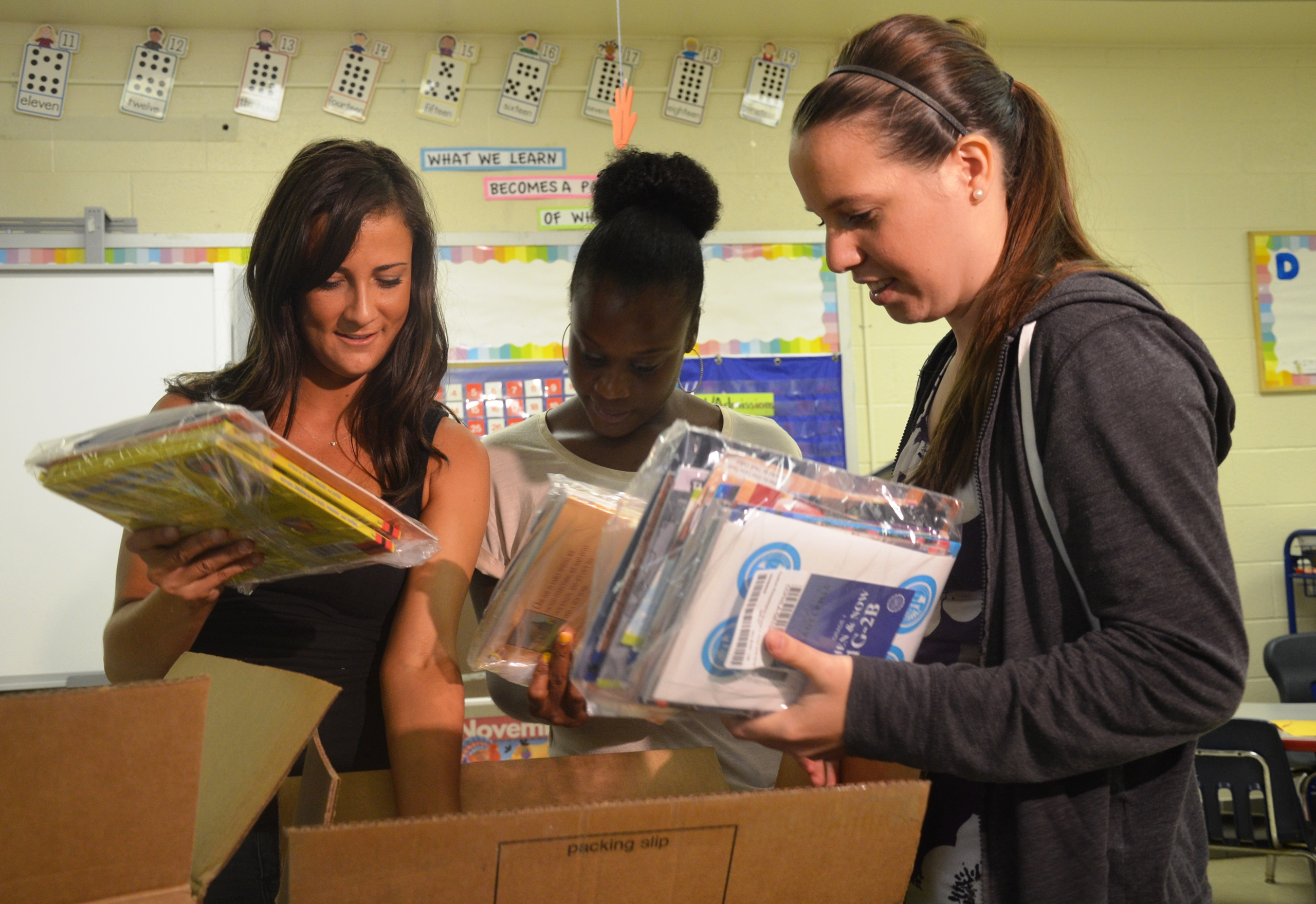
July | Great Learning
A second cohort of 600 teachers attended an intensive week of training to advance their skills in early literacy instruction. With support from the William Penn Foundation, the Lenfest Foundation, and the School District of Philadelphia, this summer training brought the number of people trained to more than 1200 kindergarten through third grade teachers. Each of these teachers is supported with an early literacy specialist working in their schools to help them implement the research-based practices that will yield success for our students. Each teacher also received a classroom library specially selected for their students to engage them in reading every day.
July | Watershed Protection
The William Penn Foundation awarded an additional $15 million toward the Delaware River Watershed Initiative, extending existing grants for an additional year and supporting a robust planning period to evaluate and implement key learnings from the first phase of the Initiative.
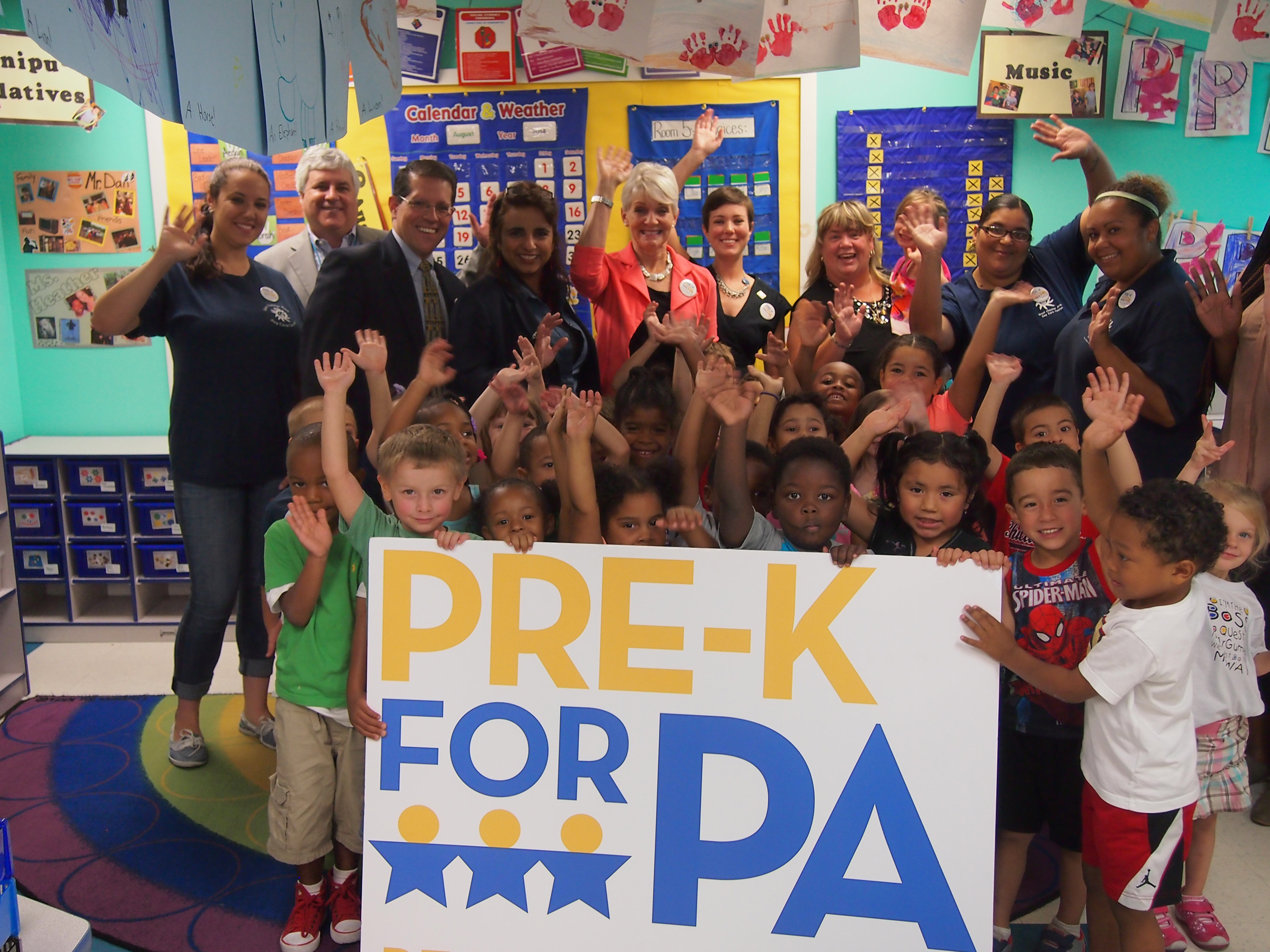
October | Great Learning
Enrollment opens for 2,000 children to enroll in pre-kindergarten funded by the City of Philadelphia. This new opportunity will allow more 3- and 4-year-olds to experience the benefits of early childhood education. With support from the William Penn Foundation, efforts such as Success by Six, the Fund for Quality, and Action for Early Learning help to ensure that there are high-quality programs available for these additional students in locations across Philadelphia.
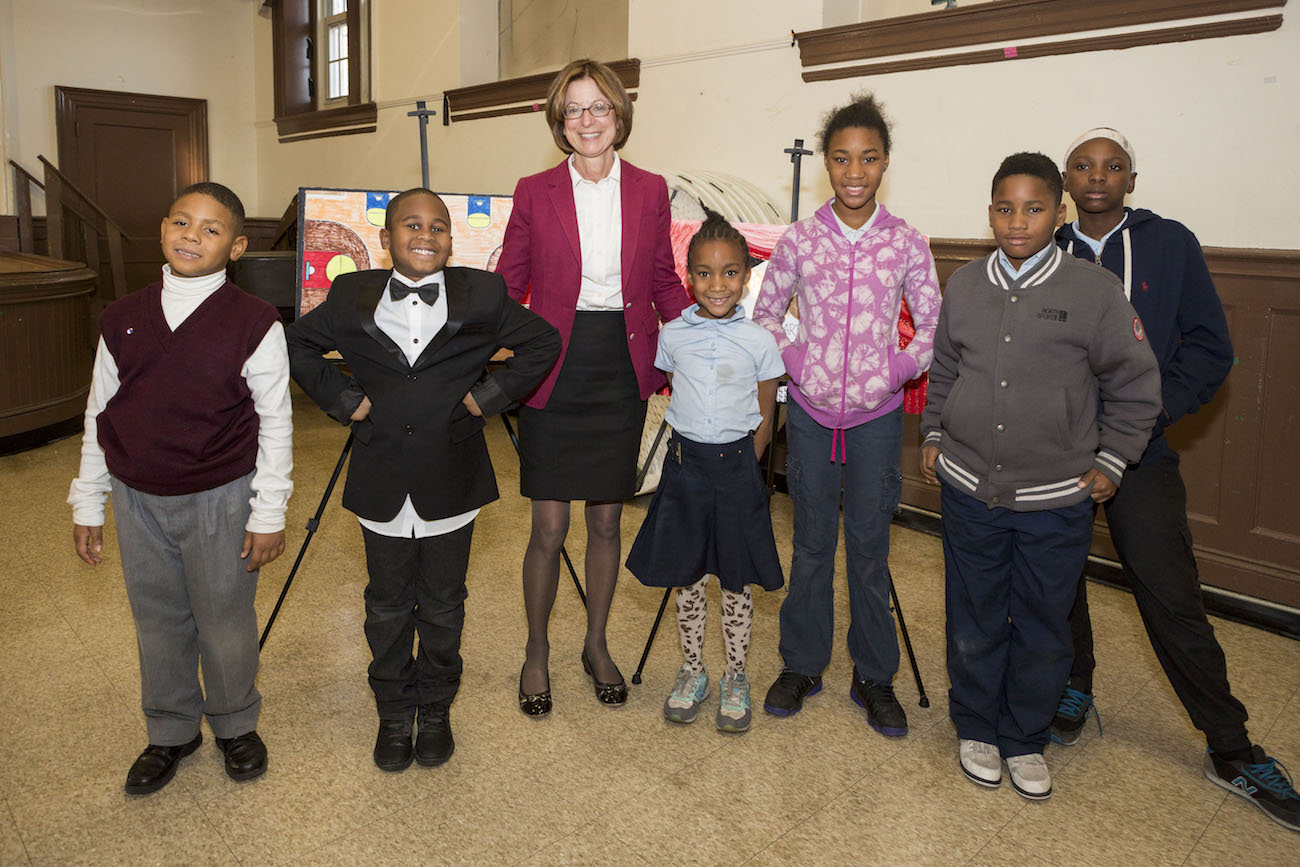
November | Creative Communities
A long and compelling history of investing in public space inspires a $500+ million city effort to transform neighborhood parks, recreation centers, and libraries across the city. Known as Rebuilding Community Infrastructure, the Foundation commits $100 million to support this once-in-a-generation set of investments that could become a national model for community reinvestment.
Members of the Corporation
- Thomas Haas, Chair
- Christina Haas
- David Haas
- Janet Haas, M.D.
- Leonard Haas
- Katherine Hanrahan
Board of Directors
- Judith Freyer
- Andrew Haas
- Christina Haas
- David Haas
- Frederick Haas
- Janet Haas, M.D. (Chair)
- Leonard Haas (Vice Chair)
- Peter Haas
- Thomas Haas
- Katherine Hanrahan
- Donald Kimelman
- Howard Meyers
- Michael Pearson
Associate Director
- Timothy Haas
Foundation Staff
Executive Director
- Shawn McCaney*
Programs
- Clare Billett, Program Officer, Watershed Protection
- Nathan Boon, Program Officer, Watershed Protection
- Cara Ferrentino, Program Officer, Creative Communities
- David Gould, Program Officer, Creative Communities**
- Anna Guarneri, Program Officer, Great Learning**
- Anairis Hinojosa, Program Associate, Great Learning
- Andrew Johnson, Program Director, Watershed Protection
- Chris Kieran, Program Associate, Watershed Protection
- Kerri Lee, Program Associate, Great Learning**
- James Liou, Program Officer, Great Learning
- Olive Mosier, Director of Arts Funding, Creative Communities
- Hillary Murray, Program Associate, Creative Communities
- Michele Perch, Program Associate, Watershed Protection
- Rashanda Perryman, Program Officer, Great Learning
- Jessica Richards, Program Associate, Creative Communities
- Elliot Weinbaum, Program Director, Great Learning
Administration
- Judith Baker, HR Business Partner
- Jamie Bartolino, Program & Communications Associate
- Lauren Desiderio, Administrative Services Associate**
- Sherae Dinkins, Administrative Services Associate
- Tamika Holman-Ricks, Grants Management Associate
- Paola Meimaris, Senior Support Specialist
- Rebecca Morley, Director of Communications
- Joanne Sabasino, Staff Accountant
- Barbara Scace, Director, Grants Management
- Edward Wagner, Information Technology Manager
Investments
- Amy Chan, Director, Investments
- Christine Chien, Senior Investment Analyst
- John Cross, Director, Investments
- Ariel Finegold, Investment Analyst**
- Timothy Haas, Operations Investment Analyst**
- MaDoe Htun, Chief Investment Officer
- Jeffrey Jackman, Director, Investments
- Dane Kline, Senior Investment Analyst
*Shawn McCaney assumed the role of interim Executive Director following Laura Sparks’ departure from the Foundation in the fall of 2016. He was named permanent Executive Director on March 1, 2017.
**Indicates employee is no longer with the Foundation.
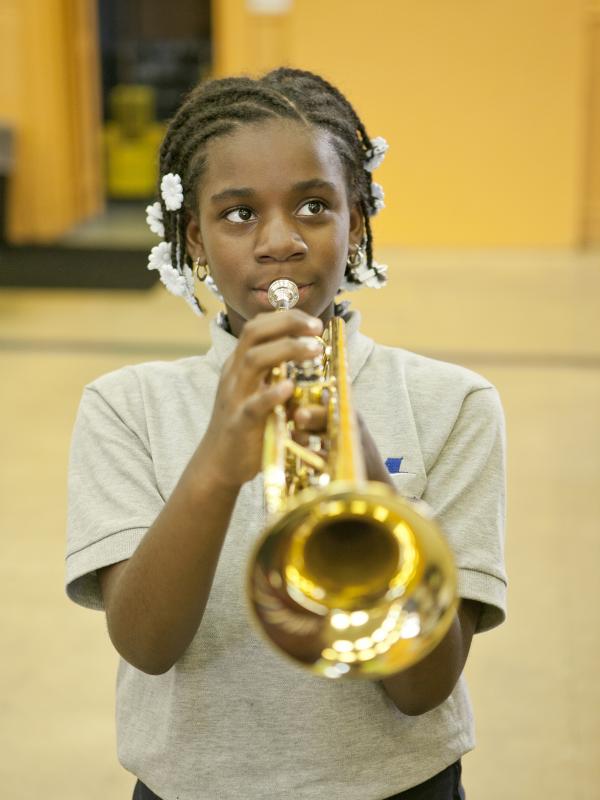

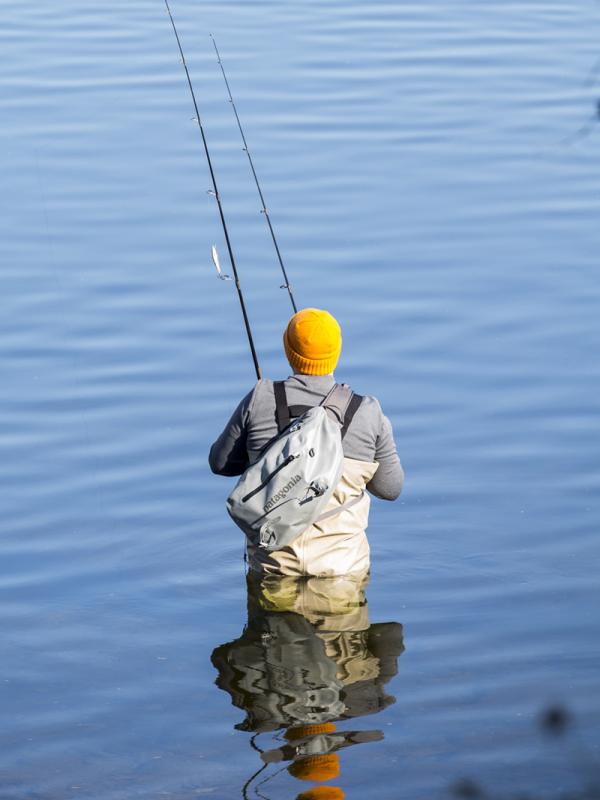
Creative Communities
- Art Sanctuary
- ArtWell Collaborative, Inc.
- Asian Arts Initiative
- Astral Artists, Inc.
- Azuka Theatre Collective
- Barnes Foundation
- Bristol Riverside Theater Company, Inc.
- Center City District
- Center for Emerging Visual Artists, Ltd.
- Central Philadelphia Development Corporation
- Clay Studio
- Delaware River City Corporation
- Delaware River Waterfront Corporation
- Dolce Suono Ensemble, Inc.
- Ego PO
- Fairmount Park Conservancy
- Franklin Institute
- Free Library of Philadelphia Foundation
- Fund for Philadelphia, Inc.
- Fund for the School District of Philadelphia
- Funders Network for Smart Growth and Livable Communities, Inc.
- Gehl Org, Inc.
- German Society of Pennsylvania
- Greater Philadelphia Cultural Alliance
- Greensgrow Philadelphia Project
- Headlong Dance Theater
- Inis Nua Theatre Company
- Institute of Museum and Library Services
- Interact, Inc.
- Intercultural Journeys
- Kimmel Center, Inc.
- Kulu Mele African American Dance Ensemble, Inc.
- Lantern Theater Company
- Mendelssohn Club of Philadelphia
- National Philanthropic Trust
- Network for New Music
- Nichole Canuso Dance Company, Inc.
- Opera Philadelphia
- Orchestra 2001, Inc.
- Painted Bride Art Center
- Penn Praxis, Inc.
- Pennsylvania Horticultural Society
- People's Light and Theatre Company
- Philadelphia Chamber Music Society
- Philadelphia Folklore Project
- Philadelphia Mural Arts Advocates
- Philadelphia Museum of Art
- Philadelphia Orchestra Association
- Philadelphia Parks Alliance
- Philadelphia Theatre Company
- Philadelphia Youth Orchestra
- Piffaro The Renaissance Band
- Play On, Philly!
- Playpenn, Inc.
- Please Touch Museum
- PRISM Quartet, Inc.
- Project HOME
- Rosenbach Museum and Library
- Schuylkill River Development Corporation
- Settlement Music School
- Shakespeare in Clark Park
- Smith Memorial Playground and Playhouse
- Southeast Asian MAA Coalition, Inc.
- Taller Puertorriqueno Inc.
- Technical Development Corporation
- Tempesta di Mare, Inc.
- The Print Center
- Theatre Horizon
- Trust for Public Land
- University of Maryland - DeVos Institute of Arts Management
- Urban Roots
- Vox Populi, Inc.
- Walnut Street Theatre Corporation
- Wilma Theater, Inc.
- Woodlands Trust for Historic Preservation
- Zoological Society of Philadelphia
Great Learning
- 50CAN, Inc.
- Academy of Natural Sciences
- Careers through Culinary Arts Programs
- Center for Popular Democracy, Inc.
- Children's Literacy Initiative
- Education Law Center - PA
- Education Policy and Leadership Center
- Free Library of Philadelphia Foundation
- The Mayor’s Fund for Philadelphia, Inc.
- Institute for the Study of Knowledge Management in Education
- Keystone Research Center, Inc.
- Need In Deed
- New Venture Fund
- Norris Square Community Alliance
- Pennsylvania Association of School Business Officials
- Pennsylvania Immigration and Citizenship Coalition
- Pennsylvania Partnerships for Children
- People's Emergency Center Community Development Corporation
- Philadelphia Hospital and Health Care - District 1199C
- Philadelphia Public School Notebook
- Philadelphians Organized to Witness Empower and Rebuild
- Public Citizens for Children and Youth
- Public Health Management Corporation
- Public Interest Law Center of Philadelphia
- Reinvestment Fund, Inc.
- Research for Action
- School District of Philadelphia
- TCC Group
- Teach Plus, Inc.
- Temple University - Center on Regional Politics
- Temple University - College of Education
- The Parent-Child Home Program, Inc.
- United Way of Greater Philadelphia and Southern New Jersey
- University City Science Center
- University of Pennsylvania - Graduate School of Education
- Urban Affairs Coalition
- Woodrow Wilson National Fellowship Foundation
Watershed Protection
- Brandywine Conservancy and Museum of Art
- Center for Watershed Protection, Inc.
- Chestnut Hill Historical Society
- Clean Air Council
- Community Foundation of New Jersey
- Consortium of Universities for the Advancement of Hydrologic Science, Inc.
- D&R Greenway Land Trust, Inc.
- Delaware and Lehigh National Heritage Corridor, Inc.
- Delaware Greenways, Inc.
- Delaware River City Corporation
- East Coast Greenway Alliance, Inc.
- Environment America Research and Policy Center
- Foundation for Pennsylvania Watersheds
- Fund for the Water Works
- Glen Foerd Conservation Corporation
- Heritage Conservancy
- Independence Seaport Museum
- Institute for Conservation Leadership
- League of Conservation Voters Education Fund
- National Audubon Society - Audubon Pennsylvania
- National Fish and Wildlife Foundation
- National Wildlife Federation
- Natural Resources Defense Council, Inc.
- Nature Conservancy, Inc.- New Jersey
- Neighborhood Bike Works
- New Jersey Audubon Society
- New Jersey League of Conservation Voters Education Fund
- Open Space Institute Land Trust, Inc.
- Partnership for the Delaware Estuary, Inc.
- Pennsylvania Environmental Council, Inc.
- Philadelphia Outward Bound Center
- Pinchot Institute for Conservation
- Pinelands Preservation Alliance, Inc.
- Resource Media
- Rutgers University Foundation
- Schuylkill River Greenway Association
- Sierra Club Foundation
- Stony Brook-Millstone Watershed Association
- Sustainable Business Education Initiative, Inc.
- Temple University - Center for Sustainable Communities
- Temple University - Water and Environmental Technology Center
- Tri-State Transportation Campaign
- Trout Unlimited, Inc.
- Trust for Public Land
- Urbanpromise Ministries, Inc.
- Wildlife Information Center, Inc.
- Yale University - School of Forestry and Environmental Studies
Multi-Program Grants
- Alliance for Justice
- Committee of Seventy
- Fairmount Park Conservancy
- Fund for Philadelphia, Inc.
- Good Company Group, Inc.
- Greater Philadelphia Cultural Alliance
- Kimmel Center, Inc.
Statement of Activities
For the year ended December 31, 2016 (Unaudited)
Revenues
| Dividends | $14,739,615.00 |
| Interest | $7,727,143.00 |
| Net Realized & Unrealized Gains on Investments | $106,174,406.00 |
| Total Revenue | $128,641,164.00 |
Grants Made & Operating Expenses
| Grants Made, Accrual Basis | $115,950,847.00 |
| Program, Administration & General Expenses | $9,031,685.00 |
| Investment Fee Expenses | $10,035,589.00 |
| Excise Tax and UBIT | $785,264.00 |
| Total Expenses | $135,803,385.00 |
| Change in Net Assets | -$7,162,221.00 |
| Net Assets, Beginning of Year | $2,223,169,237.00 |
| Net Assets, End of Year | $2,216,007,016.00 |
Grant Payments & Future Commitments
For the year ended December 31, 2016
| Creative Communities | $34,996,562.00 |
| Great Learning | $28,071,216.00 |
| Watershed Protection | $35,134,272.00 |
| WPF Fund | $14,893,923.00 |
| Director Discretionary & Matching Gifts | $2,382,428.00 |
| Total 2016 Grant Payments | $115,478,401.00 |
| Total Future Commitments | $181,483,552.00 |
